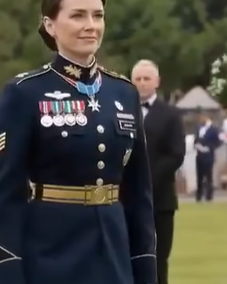A Call That Changed Everything
My name is Cassandra Sharp. I’m forty-two. For the last three years, I’ve learned a harsh truth: family loyalty doesn’t always run both ways, especially when they see you as a glorified government-paid security guard.
The call came at 4:30 a.m. on a Tuesday. My grandfather, Robert Sharp—the man who raised me after my parents died in a car accident—had suffered a massive stroke. Doctors at Methodist Hospital in Dallas gave him forty-eight hours at most. I was in Afghanistan at the time, overseeing an eighteen-month operation spanning three countries. But family is family. Six hours later, I was on a transport plane home, stomach twisted with the weight of unfinished business on two continents.
A Family Divided
I didn’t expect the hospital waiting room to feel like an inquisition. The Sharps were always complicated. Grandpa had built a multimillion-dollar construction empire, and his three grown children—my uncles Tommy and Dale, and my aunt Patricia—made it clear I was “the charity case,” tolerated only because their father insisted.
Growing up, family gatherings were exercises in humiliation. While cousins boasted accomplishments, I was “playing soldier”—a phrase Aunt Patricia repeated at every Thanksgiving and Christmas. Uncle Tommy warned I’d return “with nothing to show but a bad back and PTSD.”
They never asked about my deployments. They never learned I had graduated second in my officer candidate class or had been hand-picked for specialized intelligence work. To them, I remained the scared eight-year-old orphan clutching a teddy bear at Grandpa’s dining table.
Rising Through the Ranks
Grandpa was my only believer. A Korean War sergeant who’d seen real combat, he understood service. But even he didn’t know the full extent of my career.
I started as a second lieutenant in military intelligence. My aptitude for languages—seven fluently—and pattern recognition got me noticed quickly. By twenty-five, I ran human intelligence operations in Eastern Europe. By thirty, I coordinated multi-agency counter-terrorism across three time zones. By thirty-five, I became the youngest woman in Army history to reach Brigadier General.
My family knew none of this. Operational security required my cover story: I was a logistics coordinator, stationed at dull bases worldwide. Ironically, their condescension made the cover believable.
Confrontation in Dallas
Walking into that waiting room, I faced hostility I hadn’t felt in years.
“Well, look who finally decided to show up,” Uncle Dale sneered. Aunt Patricia accused me of only returning for inheritance. Uncle Tommy dismissed my work as bureaucratic paperwork.
I stayed calm. “How is he?” I asked.
Jennifer, Tommy’s wife, spoke softly. “He’s stable for now. The next twenty-four hours are critical.”
Their judgment and ignorance hit me. I had sacrificed everything—marriages, friendships, sleep—for missions they would never understand. Yet they thought I had failed.
Revealing the Truth
Something inside shifted. I reached into my pocket and made a call.
“This is General Sharp. Authorization November Seven Seven Alpha. I need indefinite emergency leave approved immediately,” I said.
The room froze. My family stared as I detailed my rank and security protocols, my work in intelligence, and the operations I had coordinated. Their faces drained of color as the truth sank in: the niece they mocked had been protecting lives globally for decades.
Saying Goodbye
In the ICU, Grandpa looked smaller, diminished by age and stroke. Yet when I took his hand, his eyes fluttered open.
“Cassie,” he whispered.
“I’m here, Grandpa,” I said. “I always come back. It’s what soldiers do. You taught me that.”
He smiled. “Knew you’d amount to something. Told those damn fools, but they never listened.”
Six hours later, he passed with my hand in his. I stayed thirty minutes, memorizing his face and holding the final moments close.
A Funeral That Changed Everything
The funeral at First Presbyterian became a near-state event. Fort Hood honor guard, twenty-one-gun salute, bagpipes playing “Amazing Grace,” local officials and media. For the first time, I wore my full dress uniform. My medals—Bronze Star, Purple Heart, Defense Superior Service Medal, Master Parachutist Badge, and the Medal of Honor—spoke for a life my family had never acknowledged.
Behind me, my relatives struggled to process the truth. Uncle Tommy, Aunt Patricia, and Dale faced the undeniable reality of who I had become.
Lessons in Family and Legacy
Afterward, they lingered awkwardly. I addressed them calmly:
“You didn’t know. But you never asked. You assumed the worst because it fit your narrative.”
I explained my cover was necessary to protect them, to protect my teams, and to maintain operational security. Mostly, I said, I never shared because they had spent decades proving they were unworthy of knowing.
Later, I returned to Afghanistan, leading a successful rescue mission that validated the urgency of the Alpha priority call.
Months later, I acknowledged family milestones quietly: congratulatory letters, gifts, and flowers. Not because I forgave them entirely, but because Grandpa had taught me that the measure of a person is how they treat others when no one is watching.
The Measure of a Soldier
Even if my family never fully understood, I honored Grandpa’s lesson. I acted with grace, with courage, and with dignity. Because that’s what a general does. That’s what a soldier does. That’s what real family does.
And in the end, that was enough.
